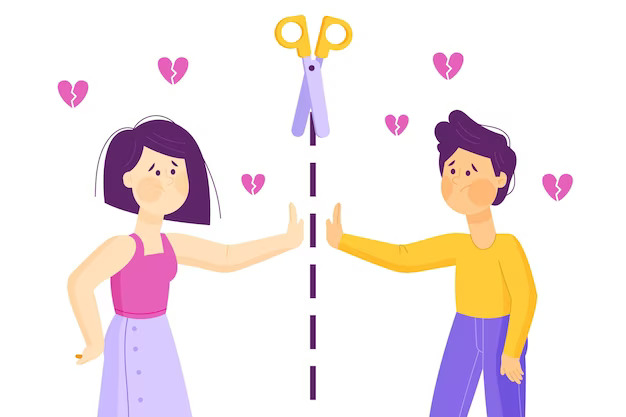This post is also available in:
हिन्दी
Disagreements are inevitable in all relationships, but you should know how to deal with them.
Two individuals from different worlds cannot create a relationship without any challenges. Even the most compatible pairs deal with conflicts, which is normal.
Hence, you should not think of it as a problem. If you are unable to handle differences in your relationship, we are here to help.

How to handle differences in a relationship?
1. Understand the expectations
Solving the issues that came into your relationship might not be easy. Still, you cannot avoid or ignore them because it’s not the right way. So, talk to your partner, and know his/her expectations from this relationship. Once you know the expectations, you can easily solve the differences in your relationship.
2. Make time to be together
If both of you are busy most of the time, there are chances that you two will relay only crucial details and logistics. This situation is not good. If you have multiple complaints about your partner, then you should try to spend some quality time together. Relax together regularly and have fun. Find activities that are enjoyable for both of you. Do things that increase the closeness between you two.
3. Be respectful during heated conversations
Do not cross the line when you two are into an argument. Keep the focus on solving the issue and do not bring personal comments into the conversation. No matter what is the cause of the argument, do not yell at your partner or curse him/her. Above all, do not ever try to attack or show any aggressive body language to threaten your better half. Such behaviour might scare your partner.
4. Focus on the qualities
You might think of a lot of negative points when you are upset, which is quite normal. But, your partner is not trying to make your life hard. Arguments or differences are not signs that your partner does not want you anymore. So, shift your attention to the positive qualities of our better half. It will reduce the frustration and stress in your mind.
5. Communicate without any barriers
A healthy relationship is where you and your partner can openly talk about the good and bad of your relationship. Do not only talk about the problems but also focus on the positive parts. If you cannot talk about your life or other important things like money, lifestyle, or aspirations, then your relationship might be unhealthy. If you fear your partner while expressing your feelings, then you could be in an abusive relationship.
6. Accept the differences
Two people never operate in the same way. Being different from your partner is fun and exciting, not a problem. View things according to the perspective of your better half. Accept the fact that your partner is different and it could be one of the reasons why you fell for her/him. Do not force them to change or be like you.
7. Do not try to prove your partner wrong
A lot of couples use their differences to make each other wrong, which only results in friction and increases the distance. So, do not try to make your partner feel bad. Instead, understand your partner’s needs and try to fulfil them.
8. Find the root of the problems
The argument starts in a relationship when someone’s needs are not fulfilled. However, you have to understand if there is a bigger problem. For instance, if you are partying in the middle of a week and your partner is angry, then he/she might be worried about your health or work. So, put yourself in the shoes of your partner and try to think how you would feel if the role is reversed.
9. Compromise
Things change when two individuals live together. So, try to compromise, especially if you want to strengthen your relationship. Give up or include something for the happiness of your partner.
Thank You 🙏
- Creating Good Relationships: Responsiveness, Relationship Quality, and Interpersonal Goals
- Forgiveness and Relationship Satisfaction: Mediating Mechanisms
- The good and bad of relationships: How social hindrance and social support affect relationship feelings in daily life
- Sliding versus Deciding in Relationships: Associations with Relationship Quality, Commitment, and Infidelity
- Physiological Linkage in Couples and its Implications for Individual and Interpersonal Functioning: A Literature Review

